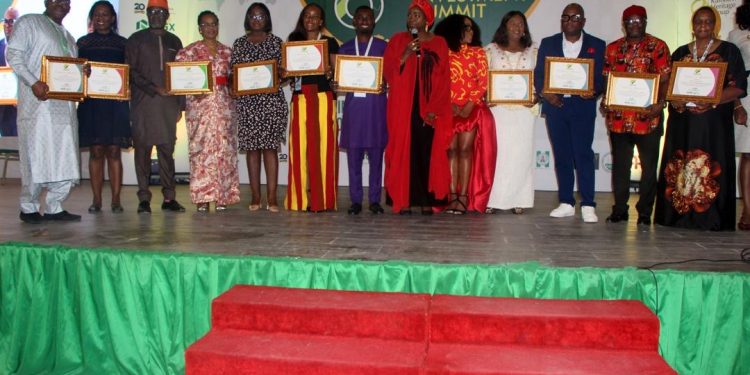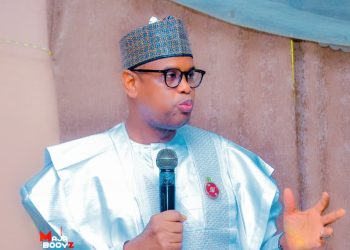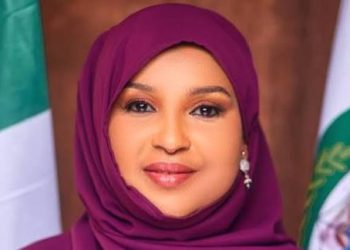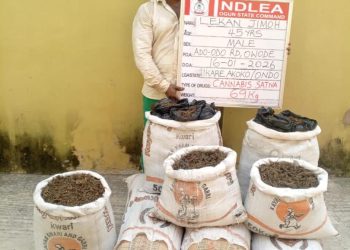By Nkechi Eze
The 8th Nigerian Diaspora Investment Summit (NDIS 2025) concluded its three-day engagement with a dynamic showcase of investor-ready innovations across real estate, health, agribusiness, energy, and the rapidly expanding creative and sports industries, signalling a renewed surge of diaspora interest in Nigeria’s fast-growing economy.
In an official signed statement, the Head of Media and Public Relations of the Nigerians in Diaspora Commission (NiDCOM), Abdur-Rahman Balogun, said each pitching session was anchored by distinguished sector experts who guided entrepreneurs in presenting bankable solutions to diaspora investors onsite and online.
The Real Estate Pitching Session, moderated by Dr Henry Ogunjobi, underscored the sector’s rising potential to reshape Nigeria’s urban and infrastructural development. “Nigeria is at a turning point, where expertise, capital, and global exposure can redefine real estate and infrastructure development,” he said. Ogunjobi urged participants to be strategic and precise in communicating their ideas, stressing: “Tell us the challenge you are solving, your corporate structure, and the support you need. Clear, actionable pitches help connect ideas to the right investors both here and online.”
Health sector innovations also took centre stage under the guidance of session moderator Jane Osaretin Ifechukwu, who highlighted the fragilities of Nigeria’s healthcare system while pointing to vast opportunities for diaspora-backed transformation. “Nigeria faces numerous health challenges, but this is also an opportunity for bold, practical solutions,” she said. She encouraged entrepreneurs to present clear, impact-driven pitches: “We want to hear what problem you are solving, how you are structured, and what specific support will turn your idea into impact. This is how we build partnerships that strengthen our national health ecosystem.”
The Creative, Entertainment and Sports Pitching Session, moderated by Beverley Agbakoba Onyejianya, spotlighted the accelerating boom in Africa’s creative economy and Nigeria’s significant contributions to global cultural exports. “We are witnessing a renaissance across Nollywood, sports tech, and the creative industries. These sectors are no longer cottage industries, they are scalable, exportable, and globally competitive,” she said. She added that the rise of local streaming platforms, digital fan engagement, and skills-based creative industries “signals a new era where African talent becomes a major global export.”
Agribusiness and Energy & Renewables also featured prominently as moderators guided entrepreneurs through two of Nigeria’s most urgent development priorities: food security and sustainable energy.
During the agribusiness session, Dr Moji Davids, agripreneur, founder of Xtralarge Farms and Resorts, and session moderator described the sector as the “lifeline” of Nigeria’s economy. She warned that food security remains a global concern and called for deeper collaboration between innovators and technologists to address shortages, create jobs, and drive economic expansion. Davids commended NDIS for providing a global platform where young innovators can showcase their talents and contribute to rebuilding Nigeria’s agricultural systems.
Startups presented solutions ranging from precision agriculture and improved seeds to aquaculture systems, sustainable packaging, leadership initiatives and women’s empowerment in agriculture. Others showcased digital marketplaces, value-addition processes, and technologies designed to elevate smallholder farmers and strengthen food value chains.
In the Energy & Renewables segment, the moderators, Mr Nick Agule, Managing Partner at Dominus Consulting, and interventionist Dr Peter Ntephe, CEO of ERHC, emphasised the urgent need to diversify Nigeria’s energy mix. They stressed that increased production in solar, CNG, waste-to-energy and clean cooking alternatives would stimulate economic growth, reduce environmental hazards, and unlock new green jobs.
Agule also urged Nigerians to leverage the opportunities offered by the new Electricity Act under President Bola Ahmed Tinubu’s Renewed Hope Agenda, which expands electricity generation and distribution responsibilities from the federal to state levels. Startups in this segment pitched solar mini-grids, low-carbon transport systems, waste-conversion technologies, and other sustainability-driven solutions.
Across all sessions, moderators strongly highlighted the need for innovation, scalability, investor readiness, stronger networking, gender inclusion, and a sharper focus on commercial viability to drive sustainable sectoral growth.
The sessions marked the conclusion of the 2025 Summit themed “Fast-Tracking Regional and National Development by Mobilising Diaspora Investment.” Organisers reaffirmed that the NDIS platform will continue to serve as a strategic link connecting diaspora investors with transformative business ideas capable of accelerating economic development, creating jobs, and expanding Nigeria’s global competitiveness.















